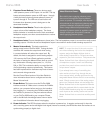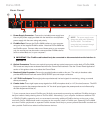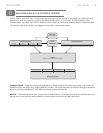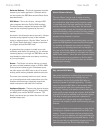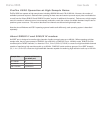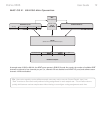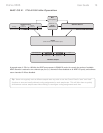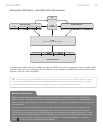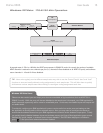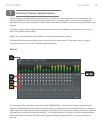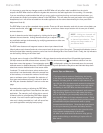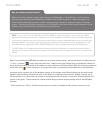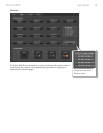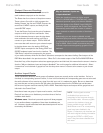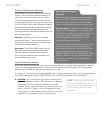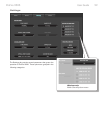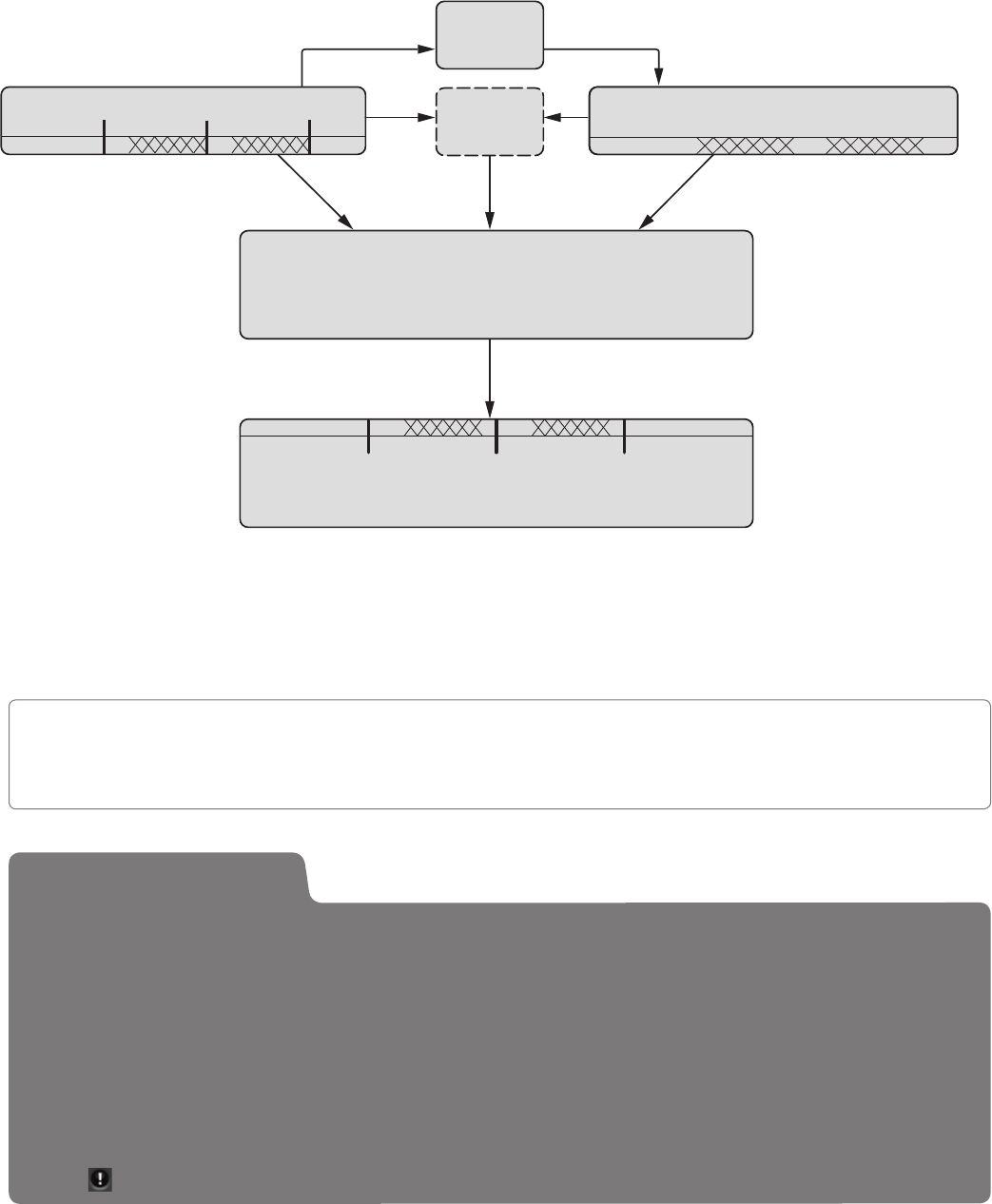
User Guide 15ProFire 2626
Windows XP/Vista: 176.4/192 kHz Operation
18x16
DSP Mixer
Router
(Select source for each hardware output)
Hardware Outputs
Software Returns
Hardware Inputs
1
|
2
|
3
|
4
|
5
|
6
|
7
|
8 1
|
2
|
3
|
4
|
5
|
6
|
7
|
8 1
|
2
|
3
|
4
|
5
|
6
|
7
|
8 1
|
2
1
|
2
|
3
|
4
|
5
|
6
|
7
|
8 1
|
2
|
3
|
4
|
5
|
6
|
7
|
8 1
|
2
|
3
|
4
|
5
|
6
|
7
|
8 1
|
2
Analog
Analog
ADAT A
(S/MUX IV)
ADAT B
(S/MUX IV)
S/PDIF
S/PDIF
1
|
2
|
3
|
4
|
5
|
6
|
7
|
8
|
9
|
10
|
11
|
12
|
13
|
14
|
15
|
16
|
17
|
18
|
19
|
20
|
21
|
22
|
23
|
24
|
25
|
26
176.4/192 kHz Operation (PC)
PC
Audio Application
ADAT A
(S/MUX IV)
ADAT B
(S/MUX IV)
At sample rates of 176.4 or 192 kHz, the ADAT ports operate in S/MUX IV mode. As a result, the number of available
ADAT channels is reduced to two channels per port (i.e., channels 3-8 are disabled on all ADAT I/O ports), and software
return channels 11-16 and 19-24 are disabled.
TIP: Users who regularly work at different sample rates may wish to use the Control Panel’s “save” and “load”
functions to store and recall preferred routing assignments for each sample rate. This will allow them to quickly
shift between various sample rates without having to reconfigure routing assignments each time.
Windows XP/Vista Users:
Please note that certain input and output ports become unavailable at high resolutions (such as ADAT 5-8 in
S/MUX II mode). While the ports will become disabled as the sample rate is increased, your DAW application’s
audio inputs and outputs may still be routed to unavailable ports. In this case, the disabled inputs and outputs will
not stream audio.
To avoid this, configure your DAW application’s inputs to receive audio from active ports and make sure that
the application is sending audio to active software returns. Next, you may need to reconfigure the Router to
ensure that the software returns from your DAW application are routed to active hardware output ports. To help
you quickly identify disabled hardware inputs and software returns, the Control Panel application grays-out and
italicizes any inputs, outputs, or software returns that are disabled. The DSP Mixer displays an exclamation
point (
) if the input source stream has become disabled.



